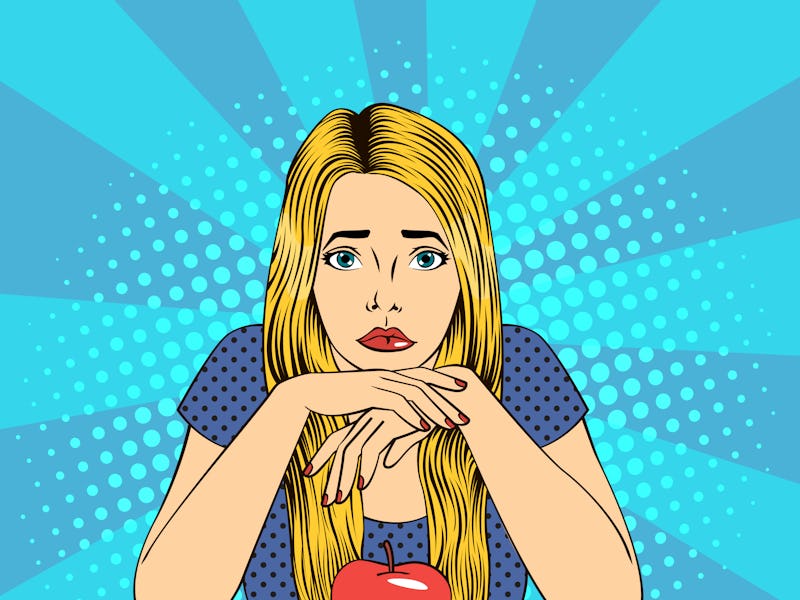How to hack your diet to fight depression
Just three weeks of chowing down on specific foods could improve your mood.

Popular weapons in the fight against depression include therapy, medications, and brain stimulation therapies. But as Inverse reported in October 2019, there may be another way to reduce depression — changing your diet.
A randomized controlled trial in young adults found that eating certain food types reduces feelings of depression within three weeks, and may provide long-term improvements in mood. The study was published in the journal PLOS One.
This is #21 on Inverse’s 25 top stories about human potential from 2019.
The study included 76 university students who exhibited moderate-to-high features of depression and had poor diets. Some of the participants were given a new diet to follow, while the others ate as they usually would. The participants in the first group received guidelines for improving their diets, meal plans, a hamper of healthy food, and $60 to buy groceries.
The participants were encouraged to eat foods associated with mental well-being — healthy fats like olive oil or walnut oil, spices like cinnamon and turmeric, fresh fruits and vegetables, and fish.
Before and after the intervention, the team assessed participants’ scores for depression, anxiety, mood, and performance on several learning and reasoning tasks.
After just three weeks of adjusted diets, participants’ depression traits improved dramatically, according to the study.
The diet-change group successfully kept up the healthier diet and showed significant improvements in mood, with depression scores falling in the average range. They also reported less anxiety. In contrast, the regular diet group’s depression scores remained in the moderate-to-high range.
What you eat — and what you don’t — matters
Poor diet may heighten the risk of depression, according to a 2013 study. But whether it’s the lack of nutrients or the addition of poor-quality foods that makes the difference isn’t clear. This study provides some clarity.
Reducing intake of processed foods — like cookies, fried foods, or so-called “junk foods” — had a stronger mood-boosting effect than upping the intake of healthy foods like fruits, vegetables, fish, or whole grains, according to the findings.
But it needn’t be either or, the study suggests. Strictly adhering to the healthier diet didn’t improve depression any more than occasionally indulging in processed foods.
The study underscores the need for more randomized controlled trials exploring nutrition’s role in protecting mental health. Compared to other therapies for depression, changing what you eat is a relatively low-cost and easy adjustment that could have dramatic benefits.
Swapping a burger for a salad won’t make depression vanish, but steadily making healthier choices — cutting down on processed and fried foods and eating more fruits, vegetables, fish, and whole grains — could translate to better mood in the long run.
As 2019 draws to a close, Inverse is revisiting 25 lessons from 2019. on human potential. This is #21. Some are awe-inspiring, some offer practical tips, and some give a glimpse of the future. Read the original article here.